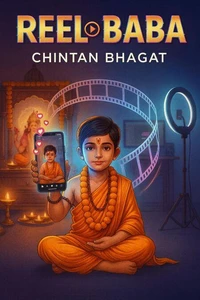In the shadow of a global storm that silenced cities and sealed borders, "Corona Days" captures the mosaic of Australian lives during the COVID-19 pandemic-a time when the vast, sun-baked continent felt both infinitely isolated and intimately connected. The air itself seemed to change, losing the grey, gritty haze of exhaust fumes and gaining a strange, crystalline clarity. The familiar symphony of urban life-the distant roar of traffic, the clang of construction, the murmur of crowded cafes-was replaced by an unnerving quiet, punctuated only by the manic cackle of kookaburras and the sudden, shrill cry of ambulance sirens.
Drawing from the raw, unfiltered voices of everyday Aussies shared in the blue-white glow of late-night online forums, this novella weaves tales of resilience, absurdity, and quiet revelation. It's a story told in the chemical scent of hand sanitizer, the muffled sound of voices through blue surgical masks, and the claustrophobic geometry of a world suddenly shrunk to the size of a living room. From Melbourne's marathon lockdowns, where the world turned a monotonous grey, to Western Australia's golden fortress behind a hard border, characters like accountant Alex, trucker Mia, and teacher Elena navigate a world upended.
They journey through landscapes rendered unrecognizable: empty highways that whispered a dangerous freedom under pale moonlight, five-kilometer bubbles that sparked micro-adventures in forgotten backstreets, and bizarre rituals born of fear that blossomed into unexpected, tender bonds. As the virus reshaped routines into surreal survival games, these stories remind us how a microscopic invader, invisible and without scent, exposed the fragility of normalcy-and the enduring, larrikin spirit of a nation that, surrounded by the deep blue sea, learned to float through chaos.
Through humor, heartache, and hindsight, "Corona Days" is not just a chronicle of isolation, but a tribute to the human quirks, the quiet kindnesses, and the shared, flickering light of screens that connected us and ultimately carried us through.
In the shadow of a global storm that silenced cities and sealed borders, "Corona Days" captures the mosaic of Australian lives during the COVID-19 pandemic-a time when the vast, sun-baked continent felt both infinitely isolated and intimately connected. The air itself seemed to change, losing the grey, gritty haze of exhaust fumes and gaining a strange, crystalline clarity. The familiar symphony of urban life-the distant roar of traffic, the clang of construction, the murmur of crowded cafes-was replaced by an unnerving quiet, punctuated only by the manic cackle of kookaburras and the sudden, shrill cry of ambulance sirens.
Drawing from the raw, unfiltered voices of everyday Aussies shared in the blue-white glow of late-night online forums, this novella weaves tales of resilience, absurdity, and quiet revelation. It's a story told in the chemical scent of hand sanitizer, the muffled sound of voices through blue surgical masks, and the claustrophobic geometry of a world suddenly shrunk to the size of a living room. From Melbourne's marathon lockdowns, where the world turned a monotonous grey, to Western Australia's golden fortress behind a hard border, characters like accountant Alex, trucker Mia, and teacher Elena navigate a world upended.
They journey through landscapes rendered unrecognizable: empty highways that whispered a dangerous freedom under pale moonlight, five-kilometer bubbles that sparked micro-adventures in forgotten backstreets, and bizarre rituals born of fear that blossomed into unexpected, tender bonds. As the virus reshaped routines into surreal survival games, these stories remind us how a microscopic invader, invisible and without scent, exposed the fragility of normalcy-and the enduring, larrikin spirit of a nation that, surrounded by the deep blue sea, learned to float through chaos.
Through humor, heartache, and hindsight, "Corona Days" is not just a chronicle of isolation, but a tribute to the human quirks, the quiet kindnesses, and the shared, flickering light of screens that connected us and ultimately carried us through.

 , qui est-ce ?
, qui est-ce ?